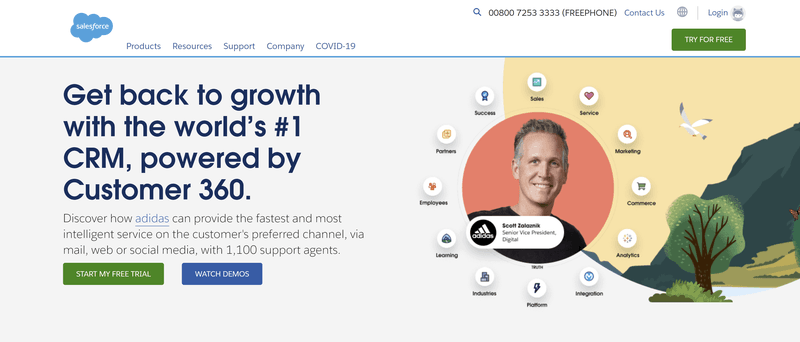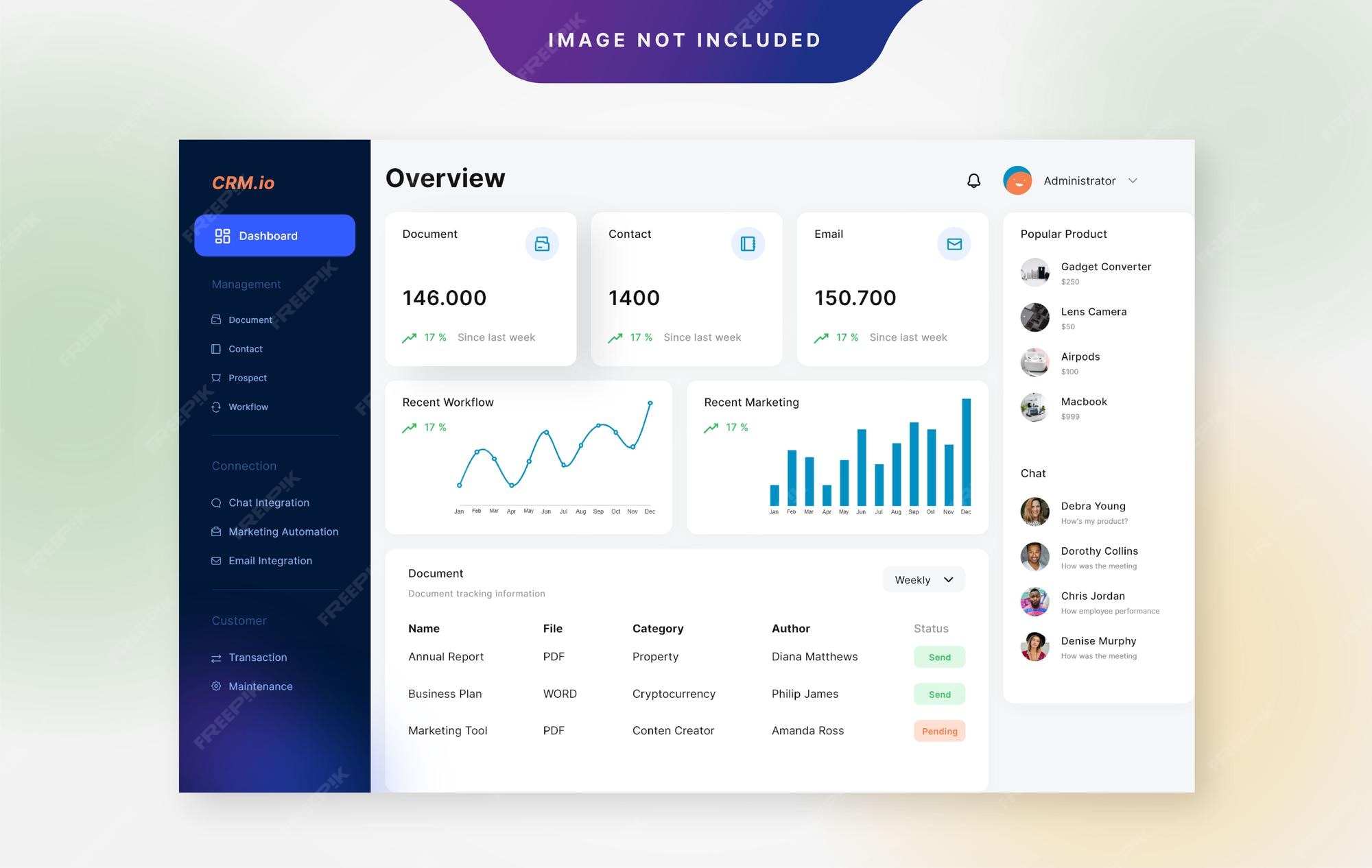Small Business CRM Trends 2025: Navigating the Future of Customer Relationships

Small Business CRM Trends 2025: Navigating the Future of Customer Relationships
The world of business is in constant flux, and small businesses, the engines of innovation and local economies, are no exception. Staying ahead of the curve requires not just adapting to change but anticipating it. One of the most critical tools in a small business’s arsenal is its Customer Relationship Management (CRM) system. As we approach 2025, the landscape of CRM is evolving rapidly, driven by technological advancements, changing customer expectations, and the ever-present need for efficiency and profitability. This article delves into the key small business CRM trends expected to shape the business world in 2025, providing insights and actionable strategies for small business owners looking to thrive.
The Rise of AI-Powered CRM
Artificial intelligence (AI) is no longer a futuristic concept; it’s a present-day reality, profoundly impacting various aspects of business. In the CRM realm, AI is poised to revolutionize how small businesses interact with their customers. Here’s how:
1. Predictive Analytics
AI algorithms can analyze vast amounts of customer data to predict future behaviors, such as purchase patterns, churn risk, and customer lifetime value. This predictive capability empowers small businesses to proactively engage with customers, offer personalized recommendations, and anticipate their needs before they even express them. Imagine knowing which customers are most likely to make a repeat purchase or which ones might be considering switching to a competitor. AI makes this a tangible possibility.
2. Automated Customer Service
Chatbots and virtual assistants, powered by AI, are becoming increasingly sophisticated. They can handle a wide range of customer inquiries, from answering FAQs to resolving basic issues, freeing up human agents to focus on more complex and high-value interactions. This not only improves customer service response times but also reduces operational costs. Think of it as having a 24/7 customer service representative that never needs a break.
3. Personalized Marketing
AI can analyze customer data to segment audiences and create highly targeted marketing campaigns. This level of personalization goes beyond simply using a customer’s name in an email. It involves tailoring content, offers, and even the timing of communications to match individual customer preferences and behaviors, leading to higher engagement and conversion rates. It’s like having a marketing guru who knows each customer inside and out.
4. Sales Automation
AI can automate tedious sales tasks, such as lead scoring, email follow-ups, and data entry, allowing sales teams to focus on building relationships and closing deals. This can significantly improve sales productivity and efficiency. Imagine a sales team that spends more time connecting with potential clients and less time on administrative duties.
The Convergence of CRM and Other Technologies
In 2025, CRM systems won’t exist in isolation. They will seamlessly integrate with other critical business technologies, creating a unified ecosystem that enhances efficiency and provides a holistic view of the customer. Some of the key integrations to watch out for include:
1. Marketing Automation Platforms
CRM systems will increasingly integrate with marketing automation platforms, allowing businesses to create closed-loop marketing campaigns. This integration enables businesses to track customer interactions across all touchpoints, from initial contact to purchase and beyond, providing valuable insights into the effectiveness of marketing efforts. This means better understanding of what works and what doesn’t.
2. E-commerce Platforms
For businesses that sell online, the integration of CRM with e-commerce platforms is crucial. This integration allows businesses to track customer purchases, personalize product recommendations, and provide seamless post-purchase support, leading to increased customer loyalty and repeat business. It’s about knowing your customers’ shopping habits intimately.
3. Social Media Management Tools
Social media is an integral part of the customer journey, and CRM systems will integrate with social media management tools to enable businesses to monitor social media mentions, engage with customers, and manage their online reputation. This integration allows businesses to stay on top of customer conversations, address concerns promptly, and build a strong brand presence. It’s like having a direct line to your customers’ thoughts and feelings.
4. Business Intelligence (BI) Tools
The integration of CRM with BI tools will provide businesses with powerful analytics capabilities. This integration allows businesses to visualize customer data, identify trends, and make data-driven decisions. It’s about transforming raw data into actionable insights.
The Growing Importance of Mobile CRM
In a world where mobility is key, mobile CRM is no longer a luxury; it’s a necessity. Small businesses need to be able to access customer data and manage their customer relationships from anywhere, at any time. This trend will continue to accelerate in 2025.
1. Enhanced Mobile Apps
CRM vendors will continue to invest in developing robust and user-friendly mobile apps that provide all the functionality of their desktop counterparts. This means that sales representatives can update customer information, track leads, and manage their pipeline on the go. It’s about having your office in your pocket.
2. Offline Access
Mobile CRM apps will increasingly offer offline access to customer data, allowing users to work even when they don’t have an internet connection. This is particularly important for field sales representatives and anyone who frequently travels. No more dead zones disrupting your workflow.
3. Voice-Activated Capabilities
Voice-activated CRM features will become more prevalent, allowing users to perform tasks hands-free, such as updating customer records or scheduling appointments. This is a game-changer for productivity, especially for those who are constantly on the move. It’s like having a virtual assistant that understands your commands.
Customer Experience (CX) Takes Center Stage
In 2025, customer experience will be the ultimate differentiator. Small businesses will need to prioritize creating exceptional customer experiences to attract and retain customers. CRM systems will play a crucial role in this.
1. 360-Degree Customer View
CRM systems will provide a 360-degree view of each customer, encompassing all interactions, from initial contact to purchase and beyond. This comprehensive view allows businesses to understand customer preferences, anticipate their needs, and personalize their interactions. It’s about knowing your customers better than they know themselves.
2. Proactive Customer Service
CRM systems will enable businesses to proactively reach out to customers, offering support and assistance before they even realize they need it. This proactive approach can significantly improve customer satisfaction and loyalty. It’s about being there for your customers before they ask.
3. Omnichannel Communication
Customers expect to be able to interact with businesses through their preferred channels, whether it’s email, phone, social media, or live chat. CRM systems will support omnichannel communication, allowing businesses to provide a seamless customer experience across all channels. It’s about being available where your customers are.
4. Personalization at Scale
Using data and AI, CRM systems will enable businesses to personalize their interactions with customers at scale, creating a more relevant and engaging experience. This level of personalization can significantly improve customer satisfaction and loyalty. It’s about making each customer feel valued.
Data Privacy and Security: A Top Priority
With increasing concerns about data privacy and security, small businesses must prioritize protecting customer data. In 2025, CRM systems will need to offer robust security features and comply with all relevant data privacy regulations.
1. Enhanced Security Features
CRM vendors will continue to invest in enhanced security features, such as multi-factor authentication, encryption, and regular security audits, to protect customer data from cyber threats. It’s about safeguarding your customers’ information from harm.
2. Compliance with Data Privacy Regulations
CRM systems will need to comply with data privacy regulations, such as GDPR and CCPA, to ensure that customer data is handled responsibly. This includes obtaining customer consent, providing data access and deletion options, and implementing data minimization practices. It’s about respecting your customers’ rights.
3. Transparent Data Practices
Small businesses need to be transparent about how they collect, use, and share customer data. This transparency builds trust and fosters positive customer relationships. It’s about being upfront and honest with your customers.
The Cloud’s Continued Dominance
Cloud-based CRM systems will continue to dominate the market in 2025. The cloud offers numerous advantages for small businesses, including:
1. Cost-Effectiveness
Cloud-based CRM systems typically have lower upfront costs and require less IT infrastructure than on-premise systems. This makes them more accessible and affordable for small businesses. It’s about saving money without sacrificing functionality.
2. Scalability
Cloud-based CRM systems can easily scale up or down to meet the changing needs of a business. This flexibility is crucial for small businesses that are experiencing rapid growth or contraction. It’s about adapting to whatever comes your way.
3. Accessibility
Cloud-based CRM systems can be accessed from anywhere with an internet connection, allowing employees to work remotely and collaborate more effectively. It’s about being able to work from anywhere, anytime.
4. Automatic Updates
Cloud-based CRM systems are automatically updated, ensuring that businesses always have access to the latest features and security enhancements. It’s about staying up-to-date without the hassle.
Choosing the Right CRM for Your Small Business in 2025
Selecting the right CRM system is crucial for small businesses to thrive in 2025. Here are some factors to consider:
1. Your Business Needs
Identify your business’s specific needs and requirements. What are your goals for using a CRM system? What are your most important customer relationship management processes? Consider the size of your team and the industry you are in. Some CRM systems are better suited for certain industries than others.
2. Ease of Use
Choose a CRM system that is user-friendly and easy to learn. The system should be intuitive and require minimal training. A complex system can be a barrier to adoption. Look for a system with a clean and intuitive interface.
3. Features and Functionality
Ensure that the CRM system offers the features and functionality that you need, such as sales automation, marketing automation, customer service tools, and reporting capabilities. Consider the integrations that the CRM system offers. Does it integrate with the other tools you use, like your email marketing platform or your accounting software?
4. Scalability
Choose a CRM system that can scale to accommodate your business’s growth. As your business grows, you will need a CRM system that can handle increasing amounts of data and users. Consider the system’s pricing structure. Make sure that the pricing is affordable and that it scales in line with your business’s growth.
5. Security
Prioritize security when choosing a CRM system. Ensure that the system offers robust security features to protect customer data. Check the vendor’s security certifications. Make sure that the vendor complies with relevant data privacy regulations.
6. Vendor Reputation and Support
Research the CRM vendor’s reputation and customer support. Read reviews and testimonials from other users. Make sure that the vendor offers responsive customer support and training resources. Is the vendor known for providing excellent customer service?
Conclusion: Embracing the Future of CRM
The small business CRM landscape in 2025 will be dynamic and exciting, driven by advancements in AI, the convergence of technologies, and the ever-increasing importance of customer experience. By embracing these trends and choosing the right CRM system, small businesses can build stronger customer relationships, improve efficiency, and drive growth. The future of customer relationship management is now, and the businesses that adapt and innovate will be the ones that thrive. The key is to stay informed, be proactive, and always put the customer first. By doing so, small businesses can not only survive but flourish in the competitive landscape of 2025 and beyond.





